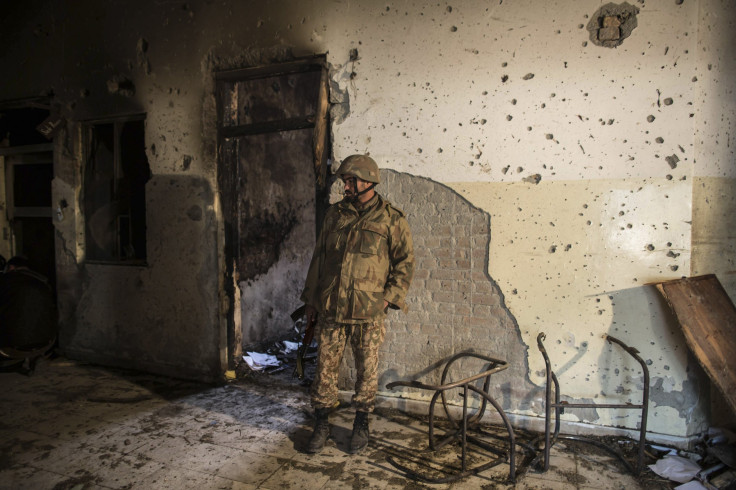Peshawar School Attack: Chilling Conversations Between Gunman, Taliban Controllers, Emerge

Chilling conversations between Taliban militants who attacked a school in Peshawar, Pakistan, Tuesday, killing 132 children and 9 staff members, and their handler, in which they discussed the slaughter, have emerged.
Pakistani newspaper Dawn reported that one of the attackers, known only as Abuzar, asked his commander: “We have killed all the children in the auditorium. … What do we do now?”
The man to whom he was speaking, who the newspaper reported that Pakistani officials identified as a senior Taliban commander in Peshawar, Umar Adizai, said “Wait for the army people, kill them before blowing yourself.”
The exchange was one of the final communications intercepted by Pakistani security forces between the attackers and their controller, taking place moments before militants charged at Pakistani soldiers sent to confront them, according to the Independent.
Children, who survived the attack, told horrific tales of having to pretend to be dead, lying among the corpses of their classmates, in order to escape the gunmen, according to the BBC.
"There were piles of bodies, most dead, some alive. Blood everywhere. I wish I had not seen this," a Pakistani security officer told IBN Live.
Pakistan officials believe the attack was carried out on the orders of Pakistani Taliban leader Maulana Fazlullah who is believed to be hiding in Afghanistan's Nuristan province, according to IBTimes's Australian sister site.
Earlier this week, Pakistan's Prime Minister Nawaz Sharif condemned the attack, and vowed to launch fresh operations against terrorism in the country.
"Our aim is to clean this region of terrorism. Not only Pakistan and Afghanistan but indeed this entire region should be cleaned of terrorism," Sharif said at a news conference on Wednesday.
The horrific details of the attack are emerging as a Pakistani court granted bail to a man accused of masterminding the deadly attacks in Mumbai, India, in 2008, in which 166 people were killed.
Indian Home Minister Rajnath Singh said the decision to grant bail to Zaki-ur-Rehman Lakhvi was deeply unfortunate. Pakistan's government has tried to draw a line under its policy of supporting Islamist militants that is seen as useful in opposing India, against whom the country has fought three wars since gaining independence from Britain in 1947, according to Reuters.
© Copyright IBTimes 2024. All rights reserved.












